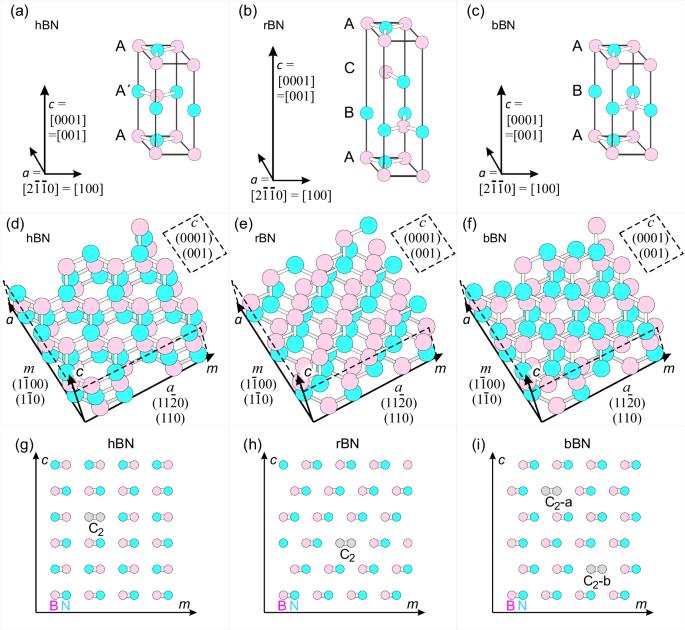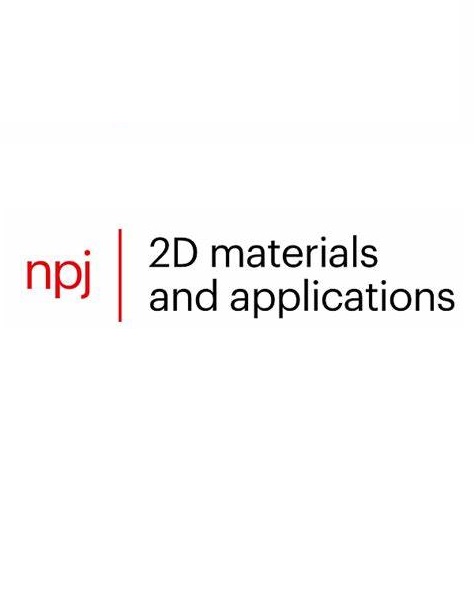用紫外光发光揭示二维氮化硼的多型性
IF 8.8
2区 材料科学
Q1 MATERIALS SCIENCE, MULTIDISCIPLINARY
引用次数: 0
摘要
氮化硼具有多种晶体结构。层状氮化硼子群包括几种多晶型,如六方(hBN)、贝纳尔(bBN)和斜方体(rBN)氮化硼。后两种是非中心对称的,可能会产生压电或铁电特性。与 sp2 键 BN 的多型性有关的一个关键挑战是如何区分这些多型性。我们证明了 4.1-eV 缺陷的光学响应可用于区分 hBN 和 rBN。对通过金属有机气相外延 (MOVPE) 技术生长的样品进行的光致发光和阴极射线测量显示,hBN 和 rBN 分别在 4.096 eV 和 4.143 eV 处出现了零声子线。我们的计算证实,光致发光源于碳二聚体 CBCN (C2),它对不同多类型的局部环境非常敏感。我们证明了通过 MOVPE 可以获得不同多型组成的 hBN 和 rBN,这为未来应用于大面积范德华异质结构铺平了道路。本文章由计算机程序翻译,如有差异,请以英文原文为准。

Revealing polytypism in 2D boron nitride with UV photoluminescence
Boron nitride exhibits various crystal structures. The subgroup of layered boron nitrides includes several polytypes such as hexagonal (hBN), Bernal (bBN), and rhombohedral (rBN) BN. The latter two are non-centrosymmetric, potentially leading to piezoelectric or ferroelectric properties. A key challenge related to the polytypism of sp2-bonded BN is distinguishing between these polytypes. We demonstrate that the optical response of the 4.1-eV defect can be used to differentiate hBN from rBN. Photoluminescence and cathodoluminescence measurements on samples grown by metalorganic vapor phase epitaxy (MOVPE) show a zero-phonon line at 4.096 eV for hBN and 4.143 eV for rBN. Our calculations confirm that the photoluminescence originates from a carbon dimer, CBCN (C2), which is sensitive to the local environments of different polytypes. We demonstrate that different polytypic compositions of hBN and rBN can be achieved by MOVPE, which could pave the way for future applications in large-area van der Waals heterostructures.
求助全文
通过发布文献求助,成功后即可免费获取论文全文。
去求助
来源期刊

npj 2D Materials and Applications
Engineering-Mechanics of Materials
CiteScore
14.50
自引率
2.10%
发文量
80
审稿时长
15 weeks
期刊介绍:
npj 2D Materials and Applications publishes papers on the fundamental behavior, synthesis, properties and applications of existing and emerging 2D materials. By selecting papers with the potential for impact, the journal aims to facilitate the transfer of the research of 2D materials into wide-ranging applications.
 求助内容:
求助内容: 应助结果提醒方式:
应助结果提醒方式:


